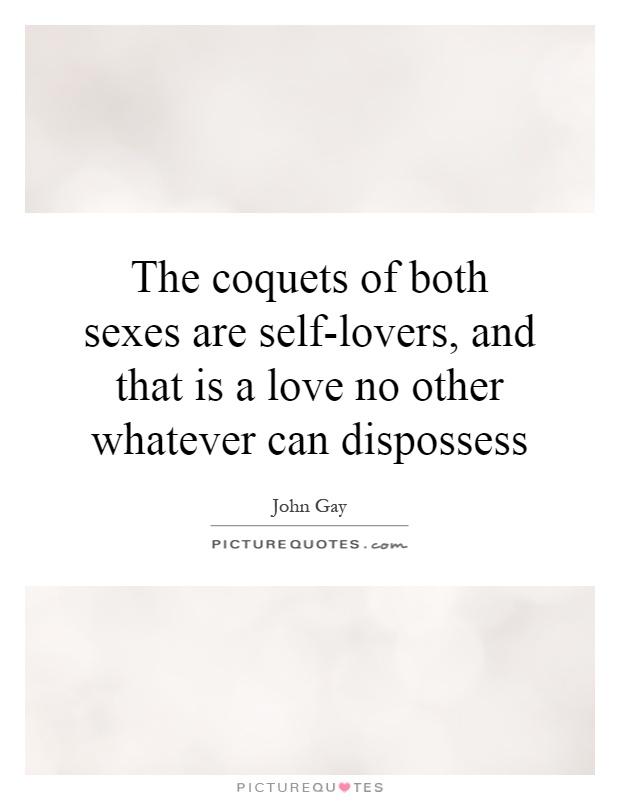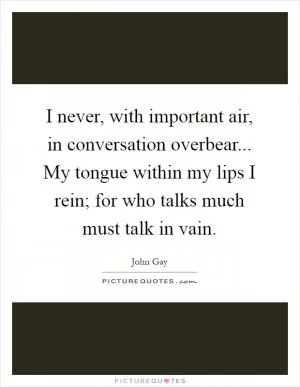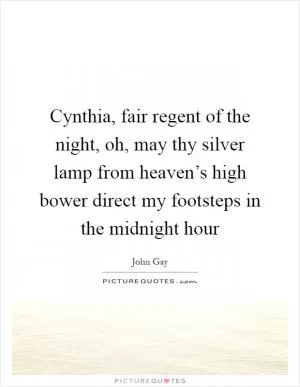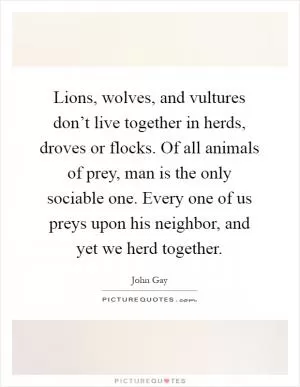The coquets of both sexes are self-lovers, and that is a love no other whatever can dispossess

The coquets of both sexes are self-lovers, and that is a love no other whatever can dispossess
John Gay was an English poet and playwright who was known for his satirical works that often critiqued society and human behavior. One of his most famous works, "The Beggar's Opera," is a prime example of his sharp wit and keen observations on the human condition. In this context, the quote "The coquets of both sexes are self-lovers, and that is a love no other whatever can dispossess" can be seen as a reflection of Gay's views on vanity, self-absorption, and the nature of love.In the world of John Gay, coquets are individuals who are flirtatious, vain, and self-centered. They are more concerned with their own image and desires than with the feelings or well-being of others. These coquets can be found in both sexes, as Gay believed that vanity and self-love were not limited to one gender. The idea that these coquets are self-lovers suggests that they are more interested in themselves than in forming genuine connections with others. Their love for themselves is all-consuming and cannot be easily displaced by the affections of another.
Gay's observation that the love of self is a love that cannot be dispossessed by any other is a cynical commentary on human nature. He seems to be suggesting that those who are self-absorbed and vain are incapable of truly loving another person. Their love for themselves is so strong that it leaves little room for anyone else. This idea is further reinforced by the word "coquet," which implies a superficial and insincere form of flirtation and affection.












 Friendship Quotes
Friendship Quotes Love Quotes
Love Quotes Life Quotes
Life Quotes Funny Quotes
Funny Quotes Motivational Quotes
Motivational Quotes Inspirational Quotes
Inspirational Quotes